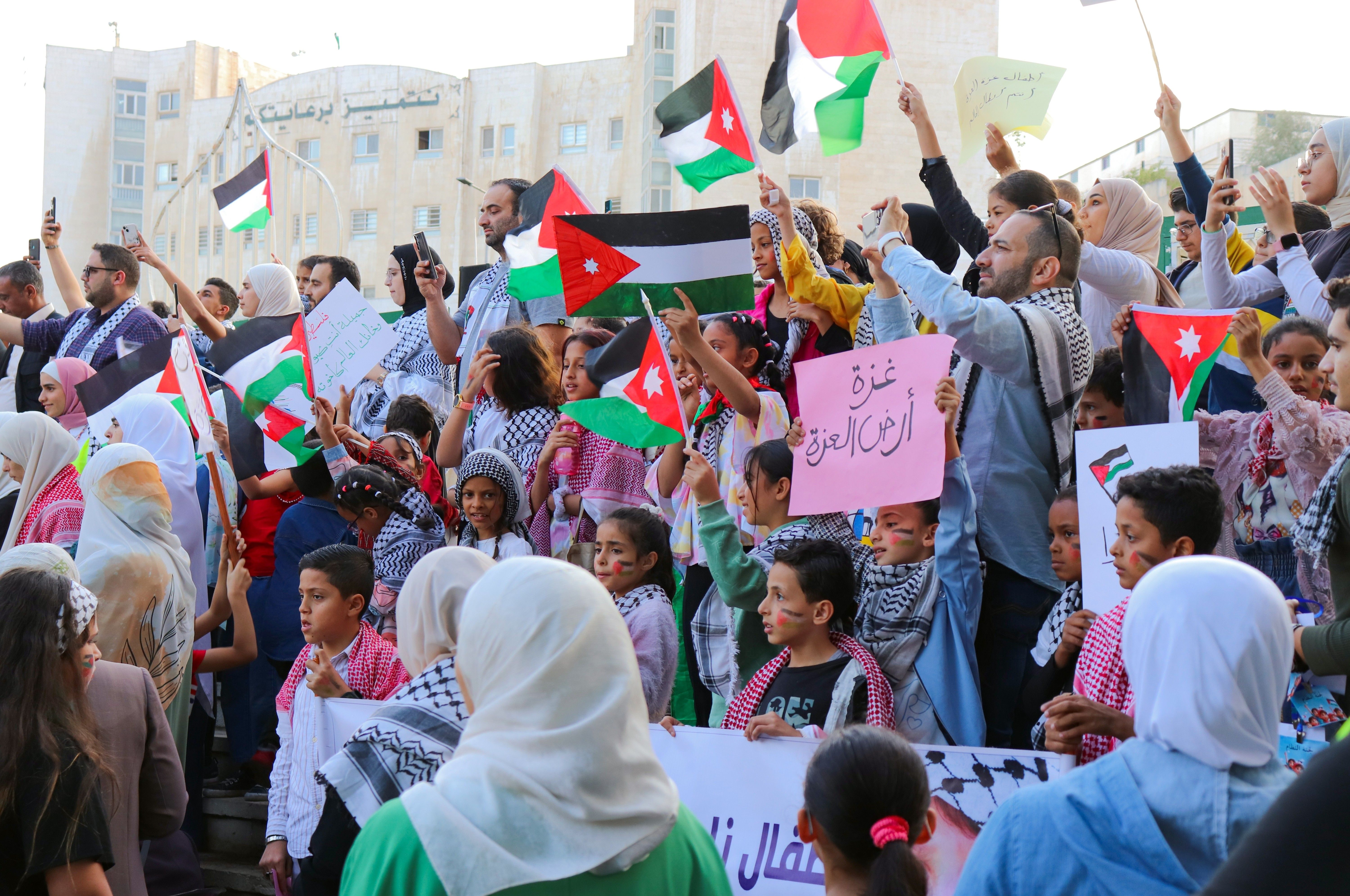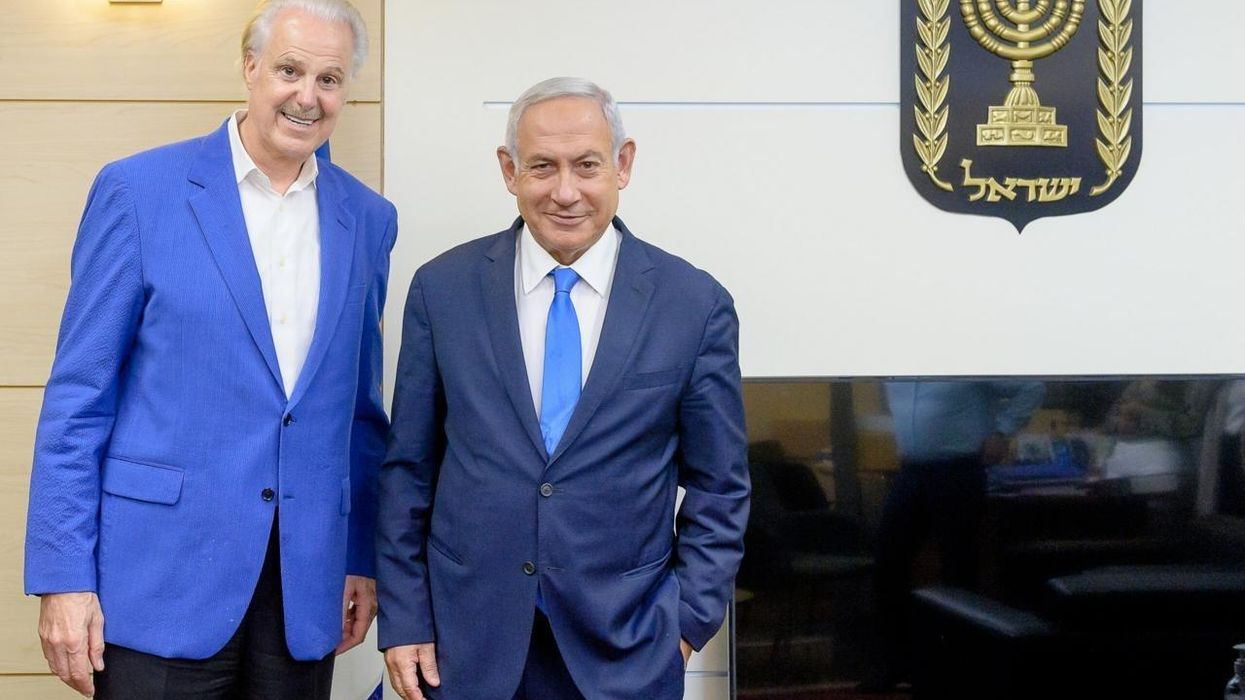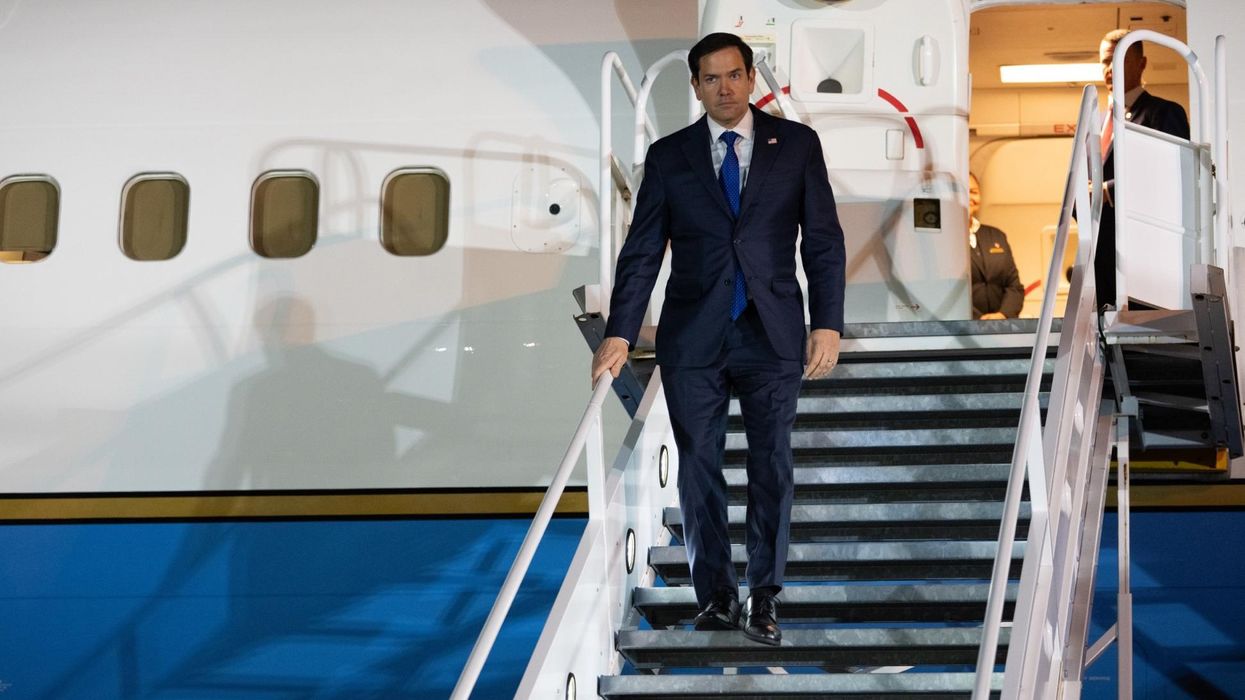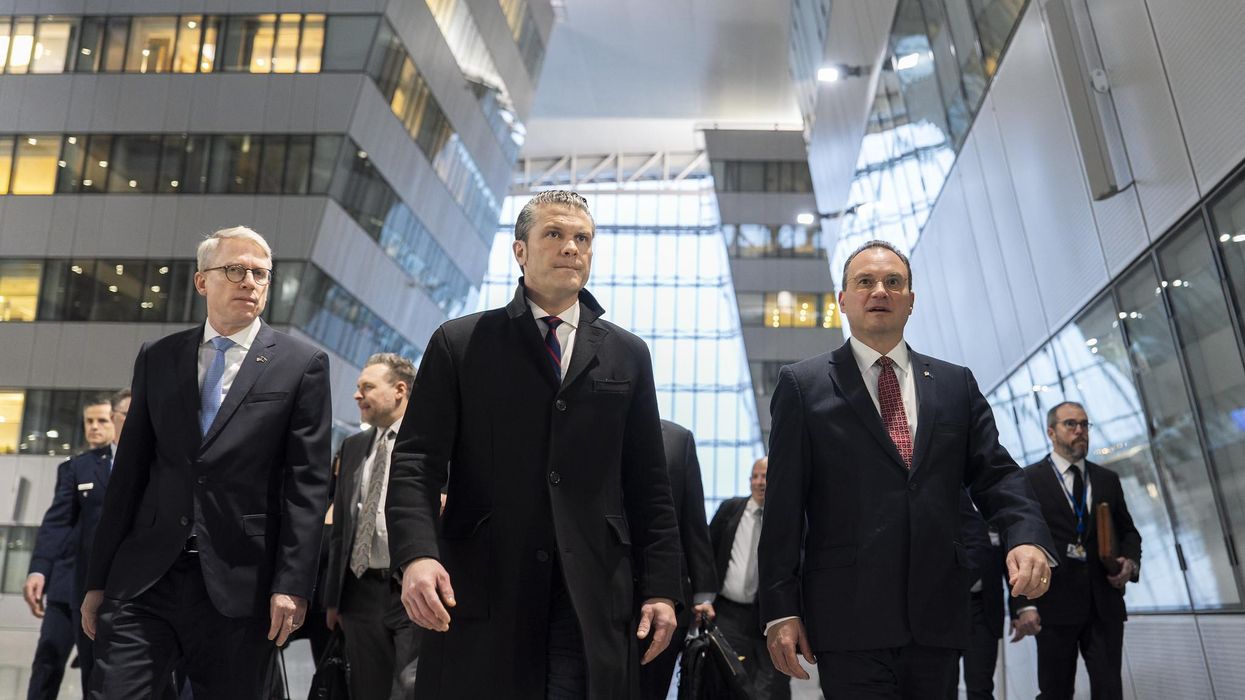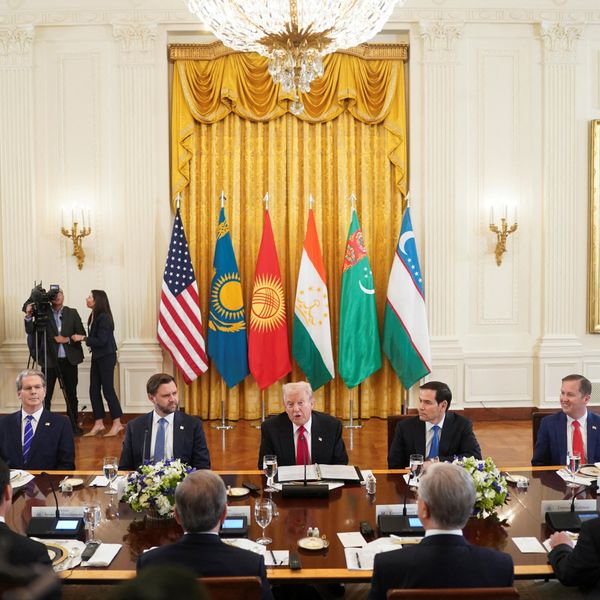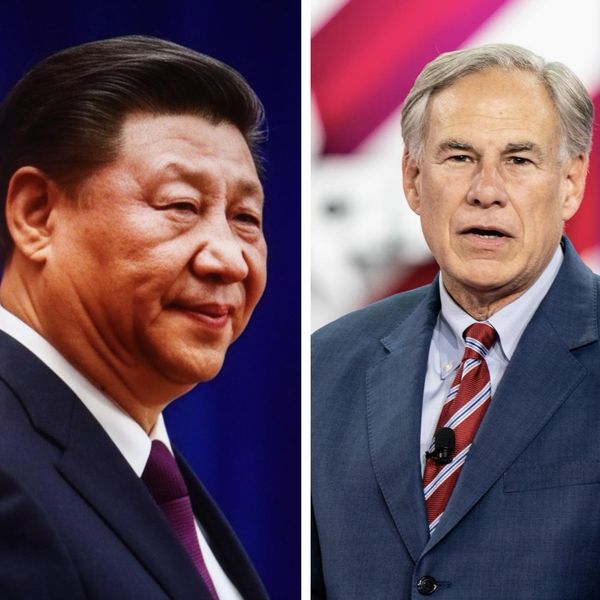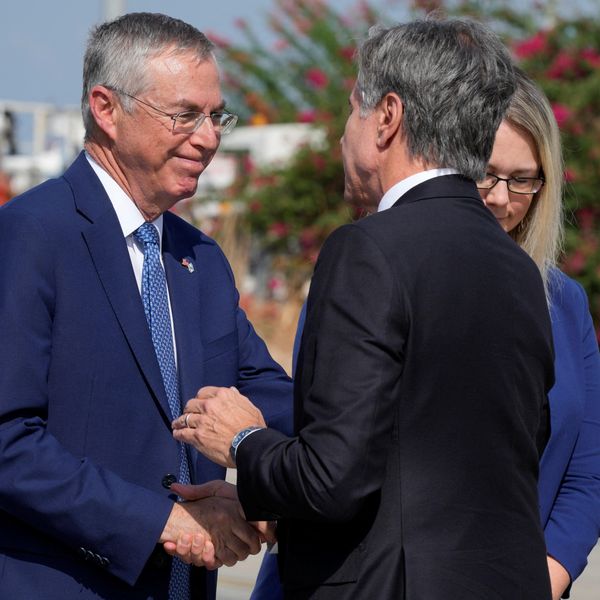This article was co-published with The New Arab.
Iranian missiles lit up the sky over Jordan this weekend as Israeli jets reportedly scrambled alongside their French, Jordanian, and U.S. counterparts to intercept the unprecedented barrage.
On the ground, regular Jordanians got their first taste of what could escalate to a broader war. Videos showed charred remnants of missiles in Marj al-Hamam, a quiet neighbourhood a short drive from downtown Amman. Some responded with levity, placing ads on the Arab equivalent of Craigslist for a “used missile”.
But the overwhelming response was anger. Jordan’s defence of Israel led to a firestorm of criticism and conspiracy on social media, with posters falsely claiming that a Jordanian princess had participated in the interceptions, while others shared fake images of King Abdullah in an Israeli uniform.
The king and his deputies responded by insisting that they would shoot down any unauthorized objects in Jordanian airspace, but it remains unclear if regular Jordanians are buying that claim.
“Things are very tense right now in Jordan,” said Sean Yom, a political science professor at Temple University. “The Jordanian government is obviously trying to do the best job that it can in just getting out of this, but it's not easy.”
This latest escalation of the Gaza war highlights the ways Israel’s campaign risks destabilizing some of the Middle East’s most conflict-averse states. The strikes, themselves a response to an Israeli bombing of an Iranian consulate, came just a few months after Iran-aligned militias attacked a U.S. base in Jordan and killed three American soldiers.
As the U.S. seeks to forge diplomatic ties between Arab states and Israel, Amman’s situation also offers a stark reminder that normalization with autocratic governments does not equal normalization with those countries’ citizens.
In recent years, the American approach to the Middle East has largely focused on freezing the situation as it stands. The Abraham Accords were designed to give Israel a stronger place in the region, allowing the Jewish state to build on previous peace deals with Jordan and Egypt and establish relations with the United Arab Emirates (UAE), Morocco, and Bahrain. The deal is simple: The U.S. will invest in your regime’s stability if you accept Israel as it exists today.
But it’s not clear that these internal tensions can stay on ice as Gaza burns. In Jordan, decades of lavish U.S. aid has done little to mollify the anger that average citizens - many of whom are Palestinians - feel over Israel’s actions.
For months, Jordanians have held daily protests outside of the Israeli embassy in Amman. The government, anxious to avoid a diplomatic crisis with Israel, has cracked down on the rallies with large-scale arrests and even a few clashes with protesters.
Jordan’s role in downing Iranian drones over the weekend has further inflamed sentiments both inside the country and across the region, according to Nader Hashemi, an expert on Middle East politics and a professor at Georgetown University.
“The United States has to realize that its almost unconditional support for Israel in Gaza is producing these types of destabilizing effects,” Hashemi said. “It's going to increase the instability in Jordan.”
A ‘very delicate’ balance
Jordan is built on a series of contradictions. The country has a largely Palestinian population but maintains a close relationship with Israel. It hosts an enormous number of refugees despite barely having enough water to sustain its own citizenry. The royal court convenes a parliament but more or less ignores any decisions that the legislature provides.
These compromises are part of an understandable balancing act on the part of Jordanian officials, who must find a way to govern a small, resource-poor state in a war-torn region, argues Rami Khouri, a Jordanian-American journalist of Palestinian descent and a distinguished fellow at the American University of Beirut.
“That balance is very delicate, but it's always been there,” Khouri said, noting that he doesn’t expect the latest escalation to cause a major crisis. “The Jordanians have always figured it out.”
This equilibrium has grown unsteady in recent years as deep economic woes have ravaged the country. Jordan’s unemployment rate sits at roughly 22%, with nearly half of young people unable to find a job, according to the World Bank. Authorities have also cracked down on protests and shuttered some of the country’s most powerful unions. The war in Gaza has added significant fuel to this growing fire by highlighting the distance between Jordanians and their leaders.
Even prior to the war, 19% of Jordanians told pollsters that Amman’s primary foreign policy goal should be to champion the Palestinian cause - more than twice the number who said Jordan should prioritize its own security. (It’s telling that fully 40% of those surveyed said the top priority should be facilitating economic agreements that promote growth and jobs.)
This does not necessarily mean that the average Jordanian is opposed to all cooperation with Israel, as Jamal al-Tahat of Democracy for the Arab World Now (DAWN) notes. After all, Jordan relies on Israel for water and trade, two essential factors for the desert country. In al-Tahat’s view, the main concern is about whether Amman is getting a fair deal in its relationship with Tel Aviv, coupled with a deep anger over Israel’s actions in Gaza.
But it’s hard to ignore the fact that the latest protests are “very new in terms of size and in terms of the determination of the people,” al-Tahat said.
Between Iraq and a hard place
To understand Jordan’s predicament, one need only look at a map. To its north and east are Syria and Iraq, both of which have long suffered from instability and war. Jordan’s neighbors to the west are Israel and Palestine, and its only port is a thin strip of land on the Red Sea near the border with Saudi Arabia.
These geographical facts have left the monarchy with little choice but to find a powerful patron to protect its interests. The US has been more than happy to fill that role so long as Jordan toes the American line on regional issues.
From America’s point of view, it’s an easy deal. A 2021 agreement gave the US military unparalleled independence for its operations in Jordan, allowing American troops to enter and transit the country as they please. The relationship gives Washington a nearly unlimited base of operations at the heart of the Middle East.
For the royal court, U.S. backing offers a crucial layer of security, especially in moments like today. “The situation is not going to threaten the stability of the country as long as you still have the large-scale American military, financial support for Jordan,” Khouri said.
But close ties with the U.S. and Israel come with strings attached. The regime has little choice but to allow both countries to use its airspace when crises occur, but it must hold onto a certain level of plausible deniability to avoid angering the Jordanian public. “If the government admits this, it would be seen in the eyes of many Jordanians as a collaborator with Israel, and that would contravene the spirit of the Jordanian government's official stance,” Yom said.
It remains unclear how Jordan’s regime could respond if a full-scale war breaks out between Israel and Iran. Experts who spoke with Responsible Statecraft/The New Arab all doubted that Amman would proactively join the conflict, but a strong possibility remains that it could get dragged into battle despite its best efforts to stay on the sidelines. One thing is certain, according to Yom: A regional war would be “cataclysmic” for Jordan.
So how can U.S. policymakers avoid such a disaster? They can start by preaching restraint to the Israelis as they weigh further strikes on Iranian assets in the region, Yom argued. “That’s the only way Jordan is able to get out of this very difficult situation with as little damage as possible,” he said.
- How American aid supports autocracy in Jordan ›
- Jordan can't afford to pay for Israel's problems ›
- Don't take your eyes off Gaza | Responsible Statecraft ›

